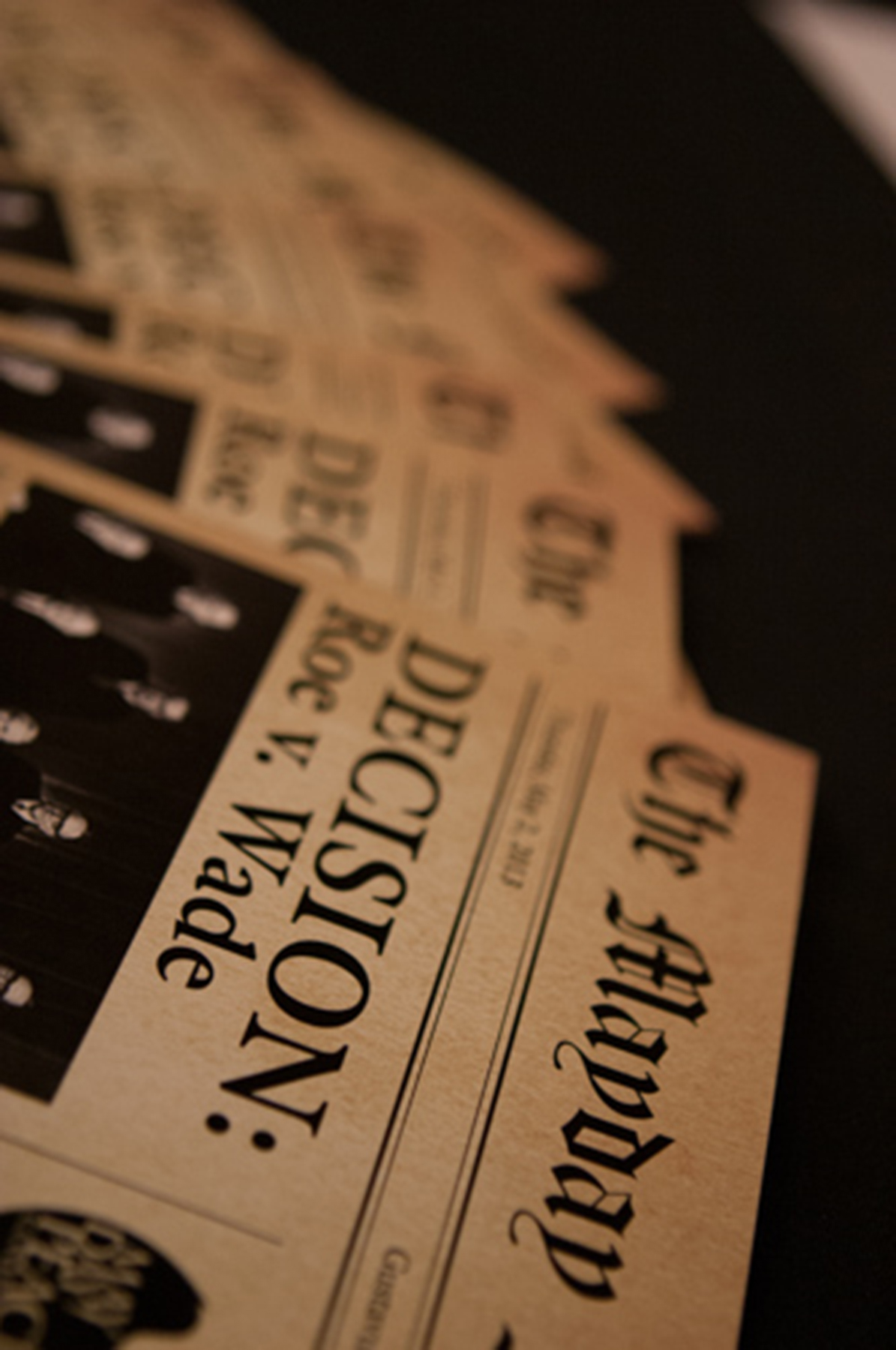As one of the most notably recognized Supreme Court decisions, Roe v. Wade served as the topic of this year’s MAYDAY! Peace Conference. This year’s theme reflected on the decision made forty years ago and the relevant topics surrounding that decision today. The 33rd Annual Peace Conference was held on Thursday, May 2, 2013.
The event began with a welcoming ceremony in Christ Chapel with an introduction by Chaplain Sabina Koij. Throughout the morning there were three rounds of concurrent teaching units in Beck Academic Hall. In contrast to previous MAYDAY! Peace Conferences, this year the event fell on a Thursday, and therefore a schedule adjustment did not take place.
“It’s important for the community, students, and staff to attend because topics we cover are on peace, human rights and social justice issues,” Junior Political Science and Scandinavian Studies Major Annalise Dobbelstein said.
As a student representative on the MAYDAY! Peace Conference, Dobbelstein worked with faculty members to develop a schedule for the conference.
“We try to present topics that have not been addressed recently; the objective of this year’s topic is to come out from the conference with many different perspectives I hope that the community will gain a better understanding and different viewpoints on Roe vs. Wade,” Dobbelstein said.
The 2013 MAYDAY! Conference Committee had considered this topic in the past, and after generating a list of ideas and suggestions, this theme emerged.
“This is the 40th anniversary of Roe vs. Wade, so it was fitting to have that as the topic this year” Director in Peace Studies Mimi Gerstbauer said. “While designing the schedule for the conference, we tried to find faculty and community members knowledgeable about the topic and students who would be able to serve on panel discussions to talk about these issues.”
Keeping in mind the multiple angles that the committee wanted to represent, the speakers chosen touched on a variety of perspectives relating to ethics, religion, medical, historical and social viewpoints.
“The goal of the workshops is not to be polemical or argumentative,” Gerstbauer said. “The goal is to teach about a perspective or an issue. The idea is not to take a strong position but to educate.”
In previous MAYDAY! Conferences, issues such as capital punishment had been the topic of discussion, often presented with two speakers for and against a cause. This year, this emphasis has significantly shifted.
“We’re drawing on different disciplines in order to really focus on the topic that is the decision and what has happened since then in a way that fits with a conference like this at an academic institution,” Senior Political Science Major Eric Halvorson said.
“We were going for diversity of information and not just presenting Roe v. Wade as if there are only two opposing perspectives and instead present it as having a multiplicity of academic perspectives. We often hear that there are just two sides that oppose each other, and it’s important to understand those two sides, but also to understand how much more there is and how much more there can be in any political discussion.”
“This year’s MAYDAY! Conference was incredible because it took the issue out of the pro-choice/pro-life binary and made it possible for people across the spectrum of beliefs to actually start a meaningful conversation about it, without having every word scrutinized or used as political ammunition. It created the opportunity to take abortion out of its usual heavily politicized narrative and see every other aspect of it, from the counseling women undergo when seeking an abortion, to the way it is discussed in theater and other art forms,” Sophomore Political Science and Gender, Women, and Sexuality Studies Major Lauren Sekelsky said.
